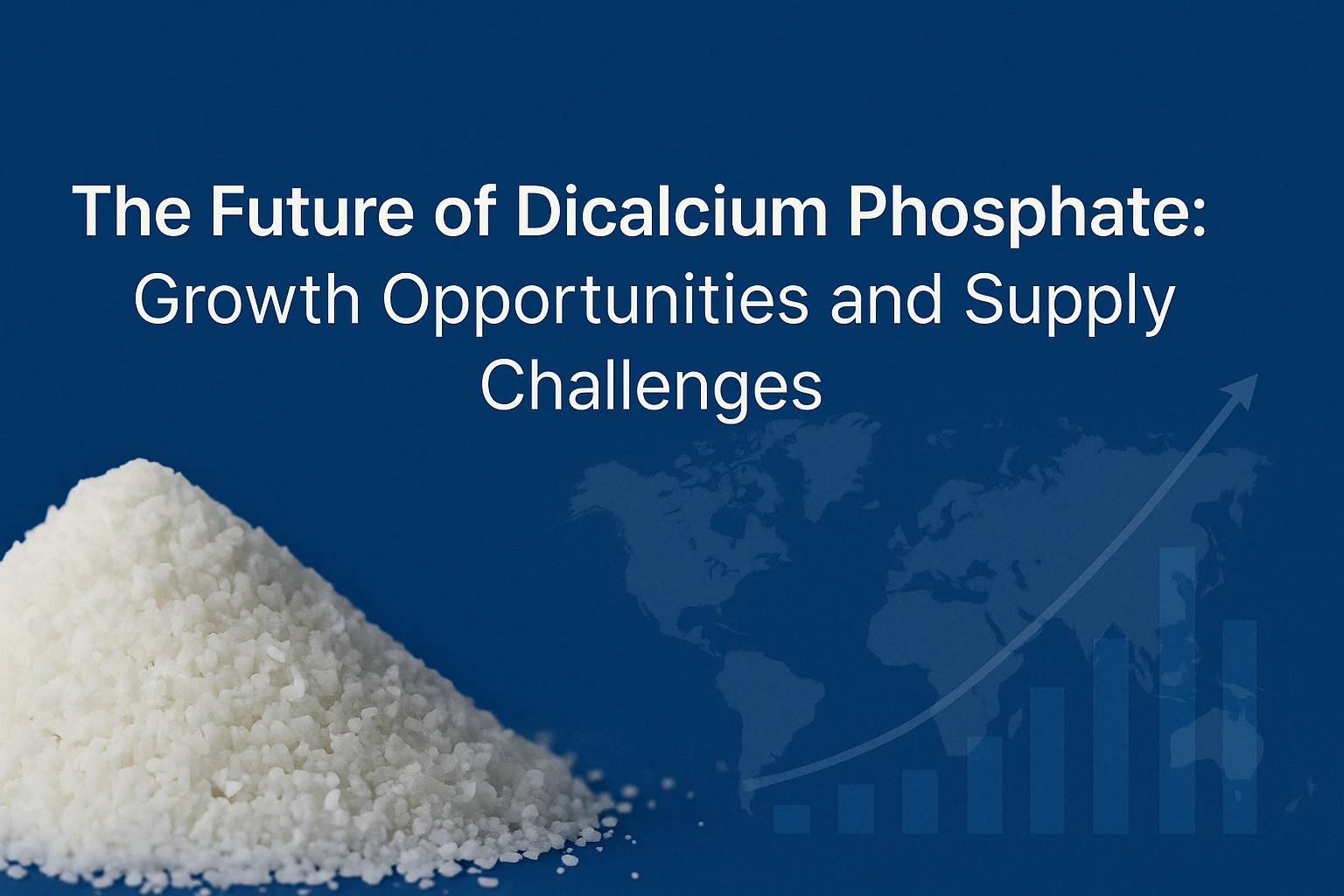1. Introduction: The Role of Dicalcium Phosphate in Modern Markets
Dicalcium phosphate (DCP) is a critical ingredient in animal feed, fertilizer blends, nutritional supplements, and food-grade additives. It ensures healthy animal growth and robust crop yields by meeting calcium and phosphorus requirements. As demand rises in livestock nutrition, agribusiness, and functional foods, DCP’s importance in global supply chains continues to increase.
2. Market Growth Opportunities for DCP in 2025
Market forecasts project DCP sales to expand from around USD 950 million in 2025 to over USD 1.6 billion by 2035, with average annual growth rates near 5.5%. Key growth drivers include:
-
Rising meat, dairy, and aquaculture consumption fueling feed formulations.
-
Expansion in developing economies, with APAC and North America leading growth via diet supplements and high-value crops.
-
Strong demand in food/beverage and specialty applications, alongside fertilizer sector innovation for enhanced yield and soil health.
Technological advances—like low-grade rock processing and sustainable mining—are lowering costs and broadening access to DCP for global buyers.
3. Supply Chain Challenges & Sourcing Risks
Despite strong demand, the DCP sector faces major supply hurdles:
-
Raw material volatility: Price and availability swings for phosphate rock, driven by geopolitical tensions, mining regulations, and environmental constraints.
-
Tariff and trade disruptions: Tariffs and regulatory changes impact cost, market access, and supplier reliability—recent Asia and North America policies exemplify this challenge.
-
Environmental impact and ESG compliance: Corporations and countries must ensure responsible sourcing, reducing emissions and improving mining practices for sustainability.
Strategic procurement—using digital tools, supply diversification, and supplier relationship management—is essential for buyers to hedge risks and secure long-term supply.
4. Technology, Sustainability, and Regulatory Trends
Manufacturers and suppliers invest in robotics, automation, and life cycle assessment to improve efficiency, reduce waste, and meet regulatory standards. The drive toward sustainable DCP—via by-product sulfuric acid, renewable energy, and minimized emissions—aligns with global ESG priorities. Certifications like GMP, ISO, and traceable sourcing help meet import/export and food safety requirements in top regional markets.
5. Regional Market Leaders and Supplier Strategies
North America controls about 48% of the market by revenue, driven by its profitable feed/food sector, with APAC growing fastest due to expansion in China, India, and Australia. Major DCP producers—Merck, OCP Group, EuroChem, Yara, Mosaic, Nutrien, PhosAgro—are investing in sustainability, advanced extraction, and regional supply networks to serve growing needs.
6. Conclusion: Securing the Future of DCP
As the world intensifies focus on food security and sustainable nutrition, dicalcium phosphate will be at center stage. Success depends on innovation, reliable sourcing, and navigating complex regulatory and supply chain landscapes. Strategic partnerships and digital supply management will be vital for buyers aiming to capitalize on growth and overcome emerging supply challenges. if you looking that products you can contact us.

Leave a Comment